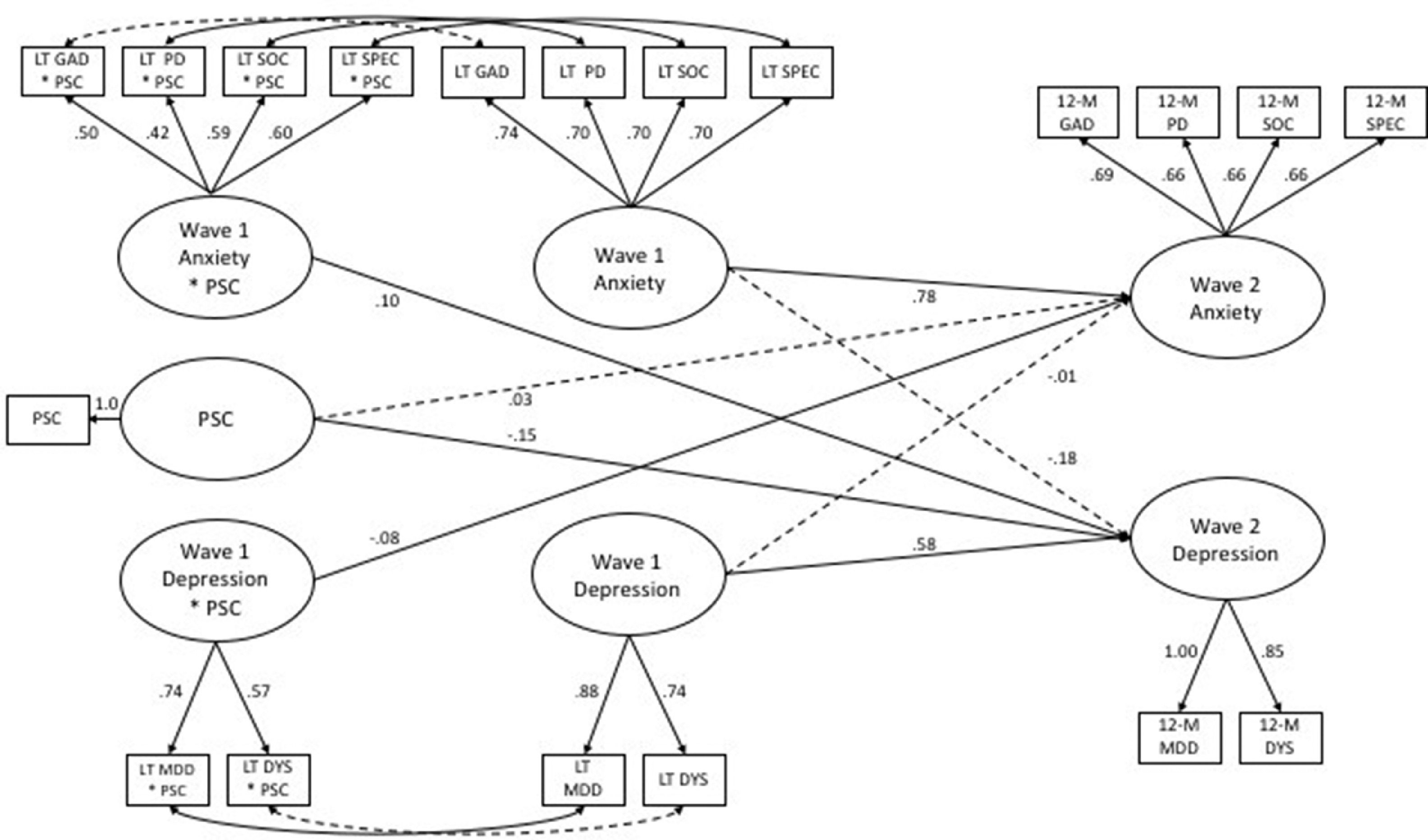
Social Criticism Moderates the Relationship Between Anxiety and Depression 10 Years Later
Abstract
Background: Research has consistently documented anxiety and depression as bidirectional risk factors for one another. However, little research investigates the sequential comorbidity of anxiety and depression over lengthy durations, and the influence of contextual variables on this relationship have not been fully empirically investigated. Method: The current study examined perceived social criticism as a moderator of the relationship between a history of anxiety and a past 12-month depressive episode at least 10 years later (and vice versa) utilizing the National Comorbidity Survey Baseline (N = 8,098) and Re-interview data (N = 5,001). History of anxiety and depressive diagnoses were assigned at Wave 1, past year diagnosis at Wave 2, and perceived social criticism was assessed at Wave 1. Results: Structural equation modeling indicated that when controlling for a Wave 1 latent depression factor, a positive relationship between Wave 1 latent anxiety and a Wave 2 latent depression emerged for those endorsing higher perceived social criticism from friends and relatives, respectively. Unexpectedly, when controlling for Wave 1 latent anxiety, a negative relationship between Wave 1 latent depression and Wave 2 latent anxiety emerged for those endorsing higher perceived social criticism from friends, but no relationship when moderated by perceived social criticism from relatives. Limitations: Perceived social criticism was self-reported, which may introduce self-perception bias. Conclusions: Results identified perceived social criticism as an important moderator in the sequential comorbidity of anxiety and depression over a long period of time.